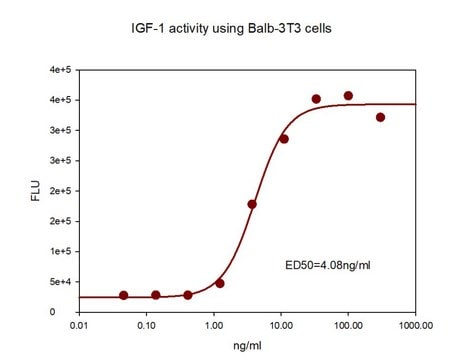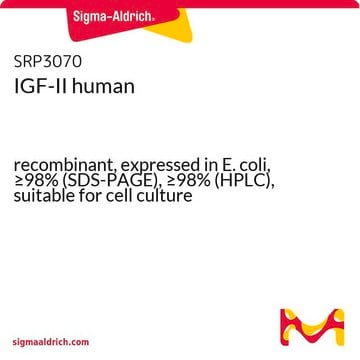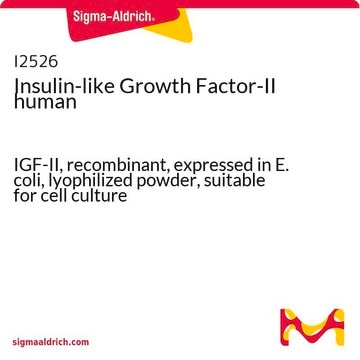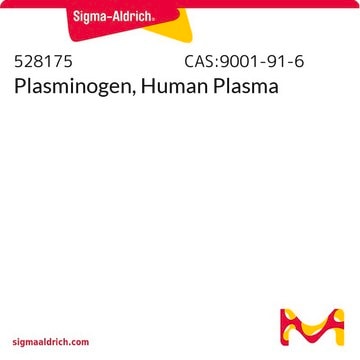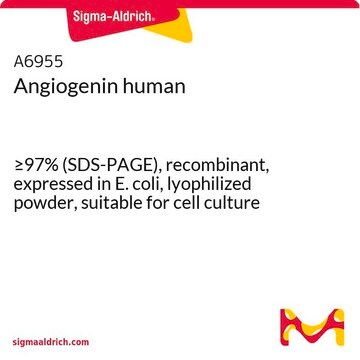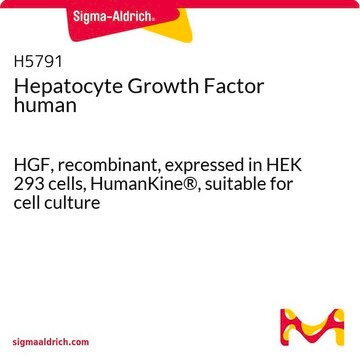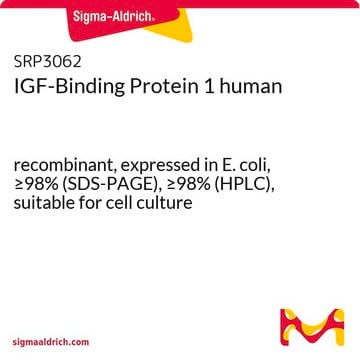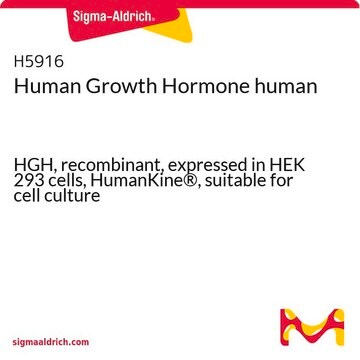SRP3063
IGF-Binding Protein 2 human
recombinant, expressed in (BTI-Tn-5B1-4) High-5 Insect Cells, ≥98% (SDS-PAGE), ≥98% (HPLC), suitable for cell culture
Synonym(s):
IBP-2
About This Item
Recommended Products
biological source
human
recombinant
expressed in (BTI-Tn-5B1-4) High-5 Insect Cells
Assay
≥98% (HPLC)
≥98% (SDS-PAGE)
form
lyophilized
mol wt
31.5 kDa
packaging
pkg of 20 μg
technique(s)
cell culture | mammalian: suitable
impurities
<0.1 EU/μg endotoxin, tested
color
white to off-white
UniProt accession no.
shipped in
wet ice
storage temp.
−20°C
Gene Information
human ... IGFBP2(3485)
General description
Recombinant human IGF-BP2 is a 31.5kDa protein consisting of 289 amino acid residues including the IGF-BP domain and thyroglobulin type-I domain.
Application
Biochem/physiol Actions
Sequence
Physical form
Reconstitution
Storage Class Code
11 - Combustible Solids
WGK
WGK 3
Flash Point(F)
Not applicable
Flash Point(C)
Not applicable
Certificates of Analysis (COA)
Search for Certificates of Analysis (COA) by entering the products Lot/Batch Number. Lot and Batch Numbers can be found on a product’s label following the words ‘Lot’ or ‘Batch’.
Already Own This Product?
Find documentation for the products that you have recently purchased in the Document Library.
Our team of scientists has experience in all areas of research including Life Science, Material Science, Chemical Synthesis, Chromatography, Analytical and many others.
Contact Technical Service